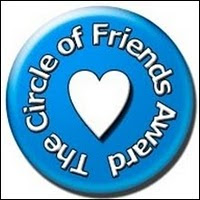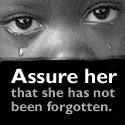God has blessed some people with tremendous gifts. One person who has the gift of creating pictures through words is Cathleen Falsani. I just had the pleasure of reading her title from 2008, ‘Sin Boldly: A Field Guide for Grace .’ And God has been showing me a lot about His grace in the last few years, so reading this book about grace is perfect!
.’ And God has been showing me a lot about His grace in the last few years, so reading this book about grace is perfect!
Here is the synopsis of this incredible book:
Why write a book about grace?
Because it’s the oxygen of religious life, or so says a musician friend of mine, who tells me, “Without it, religion will surely suffocate you.”
Because you can’t do grace justice with a textbook, theological definition, but you can get closer by describing it with music and film, pictures and stories.
Sin Boldly: A Field Guide for Grace is for people who say they’ve never experienced grace, that it doesn’t exist, or at least they don’t believe it does. It’s also for those peculiar folks who relish trying figure out whether the grace they’re experiencing is common or divine. (The answer is yes). Because everyone experiences grace, even if they don’t realize it.
is for people who say they’ve never experienced grace, that it doesn’t exist, or at least they don’t believe it does. It’s also for those peculiar folks who relish trying figure out whether the grace they’re experiencing is common or divine. (The answer is yes). Because everyone experiences grace, even if they don’t realize it.
This collection of stories is about the author’s experiences with grace – in ridiculous moments and in those that seem trivial but are anything but; in wacky adventures and quiet walks; with family and with strangers; in bars, restaurants, the occasional house of worship, and in her own home; and through conversations with people – some famous and some not – who have introduced her to grace in new ways that in turn have shaped her faith and the way she tries to live it.
Since 2001, Falsani has written a column on spirituality and popular culture for the Chicago Sun-Times. Of her work, she says she likes to try to “find God in the places some people say God isn’t supposed to be,” and that she defines both spirituality and popular culture quite broadly. Sin Boldly shows the big in the small, the universal in the particular, and the sacred in the supposedly profane by following in the confessional footsteps of Anne Lamott’s Traveling Mercies
shows the big in the small, the universal in the particular, and the sacred in the supposedly profane by following in the confessional footsteps of Anne Lamott’s Traveling Mercies and Plan B
and Plan B ; Frederick Buechner’s Whistling in the Dark
; Frederick Buechner’s Whistling in the Dark  and Wishful Thinking
and Wishful Thinking , and David Sedaris’s Me Talk Pretty One Day
, and David Sedaris’s Me Talk Pretty One Day and Dress Your Family in Corduroy and Denim.
and Dress Your Family in Corduroy and Denim.
Falsani says, “You can call it what you like, categorize it, vivisect it, qualify, quantify, or dismiss it, and none of it will make grace anything other than precisely what grace is: audacious, unwarranted, and unlimited. In the end, it’s all about grace.”
And here is Cathleen explaining what grace means to her:
Here is the Cathleen’s biography:
Cathleen Falsani, author of The God Factor and The Dude Abides
and The Dude Abides , is an award-winning religious columnist previously with for the Chicago Sun-Times; she is currently a columnist for Religion News Service and a contributing editor and columnist for Sojourners Magazine; you can also read her posts at the Huffington Post. She is a graduate of Wheaton College and holds master’s degrees in journalism and in theology. She lives in the Laguna, California with her husband and fellow journalist, Maurice Possley and their son, Vasco. She has an upcoming release entitled The Thread: Rediscovering Faith and Friendship on Facebook.
, is an award-winning religious columnist previously with for the Chicago Sun-Times; she is currently a columnist for Religion News Service and a contributing editor and columnist for Sojourners Magazine; you can also read her posts at the Huffington Post. She is a graduate of Wheaton College and holds master’s degrees in journalism and in theology. She lives in the Laguna, California with her husband and fellow journalist, Maurice Possley and their son, Vasco. She has an upcoming release entitled The Thread: Rediscovering Faith and Friendship on Facebook.
I look forward to reading the new title, as my first encounter with Ms. Falsani was on Facebook. She also has a book that has been released since ‘Sin Boldly’ called ‘The Dude Abides: The Gospel According to the Coen Brothers ,’ which takes a look at the Coen Brothers’ movies from a spiritual perspective; I will be reviewing that one soon.
,’ which takes a look at the Coen Brothers’ movies from a spiritual perspective; I will be reviewing that one soon.
In the Introduction, Ms. Falsani explains to whom this book is directed:
This is a book primarily for people who say they’ve never experienced grace, that it doesn’t exist, or at least that they don’t believe it does. It’s also for those peculiar folks who relish trying to figure out whether the grace they’re experiencing is common or divine (The answer is, Yes). (p. 11)
Cathleen explains that people ask her a particular question with regularity, and she has an answer for them:
People regularly ask me why I believe in God. The simple answer – and it’s MY answer, i.e., it may not be YOUR answer and that’s OK – is grace.
As I understand it:
Justice is getting what you deserve.
Mercy is not getting what you deserve.
And grace is getting what you absolutely don’t deserve.
Benign goodwill. Unprovoked compassion. The unearned gift.
Scads of writers and theologians have tried to describe grace, but I think musicians usually get closer to capturing it, sometimes with words, sometimes not. The first is from Bono of U2, in the song titled “Grace,” lest anyone be confused about what he was getting at.
“Grace, she takes the blame, she covers the shame, removes the stain,” he sings, in a simple tune that sounds almost like a nursery rhyme. “She travel outside of karma…Grace makes beauty out of ugly things.”
Yes, he nails it. That’s grace. (pp. 14-15)
Here’s a video of that incredible song by one of the most amazing (and worshipful) bands of all time:
One of the places that Cathleen visited in order to encounter grace was Elvis Presley’s Graceland with her friend from college and beyond, Bubba. She brought up an interesting fact in the ‘Bouncing into Graceland’ chapter:
Did you know that the only Grammy awards Elvis won were for gospel recordings? It was one of the many surprising bits of trivia I took away from our pilgrimage to Graceland, the famously kitschy Memphis home where Elvis lived – and on August 16, 1977, died. The King of Rock ‘n’ Roll won his first Grammy in 1967 for Best Sacred Performance for the recording of the gospel album How Great Thou Art. His second Grammy, for Best Inspirational Performance, came in 1972 for his gospel album He Touched Me, and a third in 1974 for the recording of the song “How Great Thou Art.” Offstage, Elvis was reared in an Assemblies of God church in Tupelo, Mississippi, singing gospel tunes with his entourage as a way to relax, and, perhaps, self-soothe. (p. 22).
Cathleen points out this important - and comforting – truth in her own inimitable style:
Yet the faith that Elvis had as a child, and that Bubba and I share, promises that it doesn’t matter whether he could pull it together in the end. God fills that gap. While it’s true that you may lose your religion during the course of a lifetime, you never lose your salvation. Once you let Jesus in your kitchen, he just keeps making peanut butter and banana sandwiches, and he never leaves. (pp. 23-24)
Here’s another comforting thought about Jesus:
When we start squealing for help – every time, without fail – he comes to the rescue, frees us from the prison of our own making, and lovingly puts us back in the flock with the rest of the goats. (p. 24)
Cathleen shares that, as a youth, she strove for perfection. She is learning as she is on her journey of faith that there is no such thing on this planet:
But as my tenure in (spiritual and physical) adulthood wears on, I’ve discovered – thank God – that all of that is thoroughly wrongheaded and simply impossible.
There is no right way. There is no best. There is no perfect. It’s not a competition. Not when it comes to faith. Not when we’re talking about a relationship with the divine. In the end, it’s about grace; it’s about something you don’t do. It just is. (p. 31)
I have learned that on my journey as well – and it is so freeing to not try to be perfect anymore!
Here’s some good advice from Cathleen as we live this life:
It’s not a race, so stop to smell the flowers along the way, bask in the warmth of the sun, enjoy the silence, allow the peace to embrace you. And rest a while at the center before making your way back into the world. (p. 33)
One of Cathleen’s favorite spots in the world is New Orleans. She is amazed at the resilience of the people of that city. Jean, a friend of her friend Bubba, started a church in Bay St. Louis, Mississippi called Lagniappe; it’s an old Creole word that means “something extra”:
In other words, a lagniappe is getting what you don’t deserve?
“Absolutely,” Jean said. “In that sense, this area was primed for grace. It understood the gospel it didn’t know. It’s like Babette’s feast. Too often the church is the gruel sippers who have their faces pressed against the window of the world watching the world celebrate life and they don’t get it. When in reality, the father welcomed the prodigal son home in the gospel of Luke, chapter 15, and the world pressed its face against the window to see the celebration of life.” (p. 56)
Cathleen makes this statement about grace with relation to the Gulf region:
Sometimes grace is having the strength to persevere through the storm.
Sometimes it’s having the guts to rebuild, to take a chance, to follow your nose and your heart rather than your head.
Sometimes it’s having the guts to rebuild, to take a chance, to follow your nose and your heart rather than your head.
Sometimes grace is finding out that your preconceived notions are dead wrong.
Sometimes it’s being surprised by joy.
Sometimes grace is something you can feel even if you can’t see it.
And sometimes it’s a bowl of watermelon gazpacho when you were expecting Taco Bell. (p. 57)
Watermelon gazpacho is a soup (Cathleen shares the recipe on pp. 58-59!) I have been to NOLA twice myself on Hurricane Katrina outreach trips in 2005 and 2006; I look forward to visiting again (perhaps the Mardi Gras Marathon!). I continue to pray for them as they endure the BP oil disaster.
Cathleen, in the ‘Man Hands’ chapter, was surprised at a photo of the hands of Princess Grace of Monaco; they were very manly! Inspired by that photo, I love Cathleen’s vision of what Jesus looked like as he journeyed here on earth:
Jesus must have had man hands. He was a carpenter, the Bible tells us. I know a few carpenters, and they have great hands, all muscled and worn, with nicks and calloused pads from working wood together with hardware and sheer willpower. In my mind, Jesus isn’t a slight man with fair hair and eyes who looks as if a strong breeze could knock him down, as he is sometimes depicted in art and film. I see him as sturdy, with a thick frame, powerful legs, and muscular arms. He has a shock of curly black hair and an untrimmed beard, his face tanned and lined from working in the sun. And his hands – hands that pounded nails, sawed lumber, drew in the dirt, and held the children he beckoned to him. Hands that washed his disciples’ feet, broke bread for them, and poured their wine. Hands that hauled a heavy cross through the streets of Jerusalem and were later nailed to it. Those were some man hands.
I’ve heard it said that grace is God reaching God’s hands into the world. And the Bible tells us that we are part of the Body of Christ, that if we let the Spirit move through us, we can become the hands of Christ on earth. Hands that heal, bless, unite, and love. I’d like to think God’s hands are a bit like Grace’s man hands – gentle but big, busy, and tough. God’s hands are those of a creator – an artist who molded and shaped the universe out of a void, who hewed matter from nothingness. (p. 71)
I was amazed – and slightly amused – by the means God used to save Cathleen:
Mom went into the kitchen for a cup of tea and left me alone with the television, which she had tuned to a church service. I don’t remember exactly what the preacher said in his impassioned, sweaty sermon, but I do recall three things crystal clearly: The preacher was Jimmy Swaggart; he gave an altar call, inviting the folks in the congregation in front of him and at home in TV land to pray a simple prayer asking Jesus to come into their hearts; and that I prayed that prayer then and there, alone in the den in front of the idiot box.
Seriously. That is precisely how I got “saved.” Alone. Watching Jimmy Swaggart on late-night TV. I also spent a painful vacation with my family one summer at Jim and Tammy Faye Bakker’s Heritage USA Christian theme park in South Carolina. But that’s a whole other book…. (p. 83)
Sound like another entertaining read!
Cathleen goes on to explain the mindset change she had as time went on:
All through college and into my early twenties, I was a good girl, abiding by the rules (mostly), trying desperately to follow the recipe, and worrying the whole time about how I was doing as a Christian – whether I was making the right decisions, thinking the right thoughts, dancing the right steps. Then round about the age of twenty-five, I was tired of being tired of being scared about doing something that, if I deconstruct it honestly, might somehow cost me my salvation and make God love me less. When I understood, in God’s grace, that there was nothing – not a thing – I could do to make God love me any less or any more, when I understood that there was nothing wrong or right about who I am in God’s eyes, that I’m just loved, I started to live. Boldly. Or at least as boldly as I could muster much of the time. (p. 85)
Cathleen has learned along the way that we need to not be distracted by flawed people, but to keep our eyes on perfection – Jesus:
I know – oh, Lord, how I know – that the fastest way to get into trouble spiritually is to look to other Christians as an example of how to live a life of faith rather than looking to Jesus himself. The Bible tells us that Jesus was perfect and always made the right decisions. His followers? Not so much. Still, as the nineteenth century American evangelist Dwight Moody once said, “Of one hundred men, one will read the Bible; the ninety-nine will read the Christian.” What many of the proverbial ninety-nine see when they read most Christians today doesn’t look much like the Jesus of the Bible, who was all about revolutionary inclusiveness, radical love, and audacious grace.
We’re so worried about the legal details of crossing doctrinal t’s and dotting sociopolitical i’s that we miss the big picture. The love picture. The one thing Jesus was really clear about: LOVE. If we could just get that one thing down, the details would take care of themselves. (p. 104)
Preach it, sister!
Cathleen, who was in the Roman Catholic Church as a child, was given an assignment as a young reporter to write about a giant statue of the Virgin Mary at a convent in Blue Island, Illinois. There she made the acquaintance of an eight-three year old nun named Annunziata. They developed a love and friendship that lasted for many years. Annunziata was the personification of love:
My nun, which is how I think of her, was the most profound witness for God’s love I’ve ever encountered in this world. She was a magnet for lost souls, a petite fortress of strength and unconditional love. What this sprightly, silly, lovely woman did from the obscurity of a faded convent in Rust Belt Chicago was to fulfill in a passionate, tireless way the supreme commandment of Jesus’ gospel every day of her life. According to the thirteenth chapter of the gospel of John in the New Testament, just after Jesus washed the feet of his twelve disciples (including the one he knew would betray him and deliver him into the hands of his executioners), he gave them an order: “Love one another. As I have loved you, so you must love one another. By this everyone will know that you are my disciples, if you love one another.”
When Annunziata said she loved me or any of her thousands of other friends and beloveds, she was really saying, at least in my mind, “God loves you.” (p. 141)
I will close out this long review (can you tell I love this book?!) by sharing with you Cathleen’s description of an orphan who captured her (and her husband’s) heart when they met him in Malawi:
Vasco is usually the first thing I think about when I wake up in the morning, and the last thing on my mind when I fall asleep at night. I cannot get out of my mind the image of him standing by the side of the road, smiling in his too-big T-shirt with a dove and the word chisomo on it.
His dark, sad doe eyes.
His delicate, almost regal features.
His whispery, shy voice.
That sweet, quiet spirit.
I rest, when I am able, in the knowledge that God is holding my darling African boy in the palm of God’s hand, that it was no accident this child walked into my life, sat on my lap, and stole my heart.
By the way, in Chichewa, chisomo means “grace.”
I went to Africa looking for chisomo. And boy, did I find it. (p. 204)
I am happy to report that Cathleen and her husband, Maurice, have since adopted Vasco!
I adored this book! From what I have seen (from afar!) of Cathleen, she seems like one of the coolest chicks on the planet! It is always a blessing to me to see a cool person be so in love with Jesus! That combination will attract a lot of people to pursue Jesus, and that’s a good way to grow His kingdom. I am so grateful that Cathleen uses her gifts for Him. I strongly encourage everyone to read ‘Sin Boldly ’!
’!
You can order this book here .
.
This book was provided by Zondervan Publishers for review purposes.






























.jpg)







2 comments:
That is quite the title - definitely eye catching. Your interview, as always, was excellent. So many books to read and so little time ...
Tracy -
Thanks for the kind words! The title is definitely provocative! I hope it doesn't deter some people from reading it. It is a terrific read. And you're right about the quantity of quality books out there!
Thanks for commenting!
Blessings -
Andrea
Post a Comment